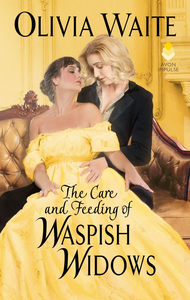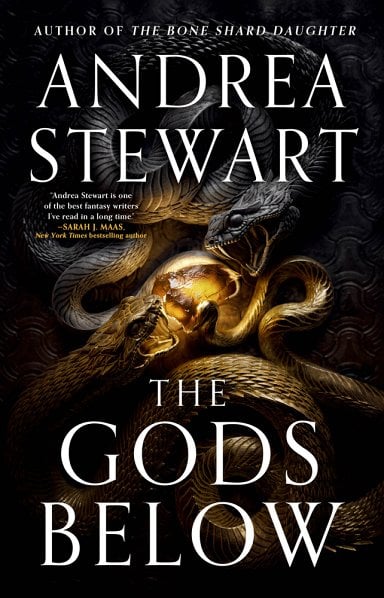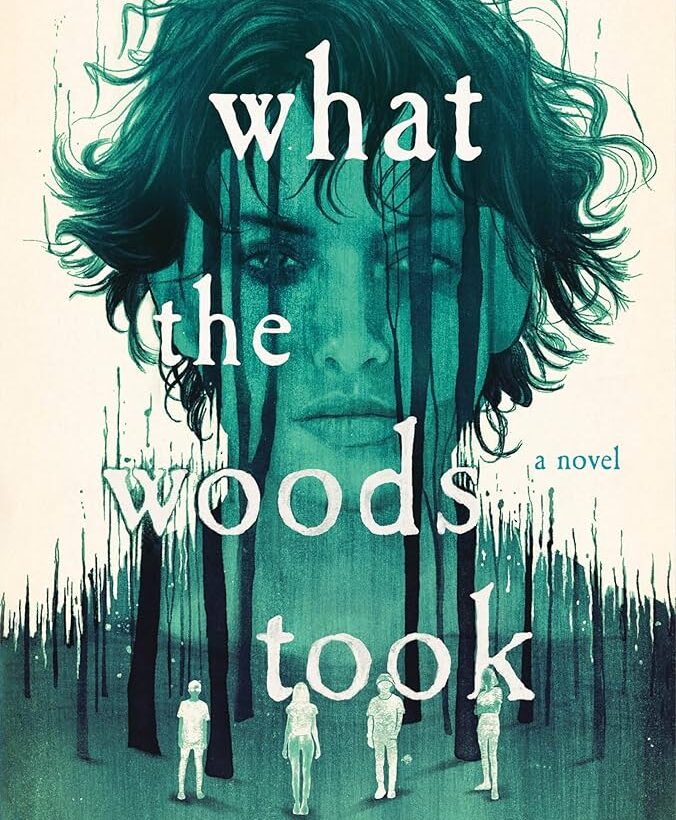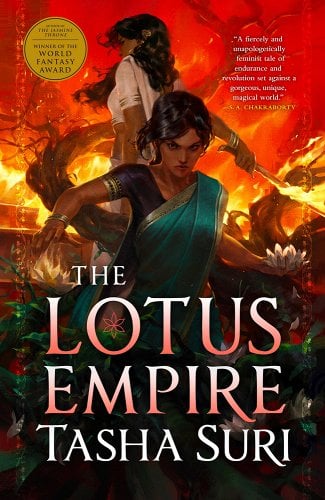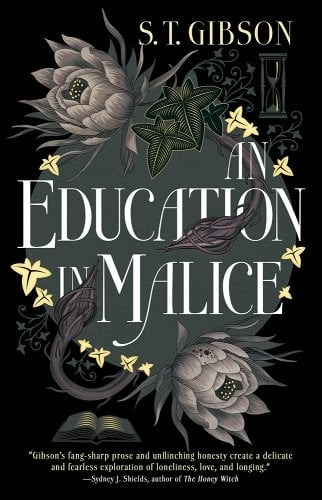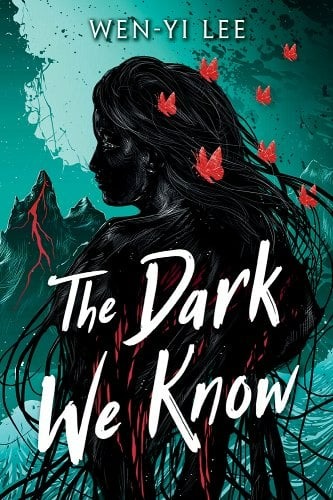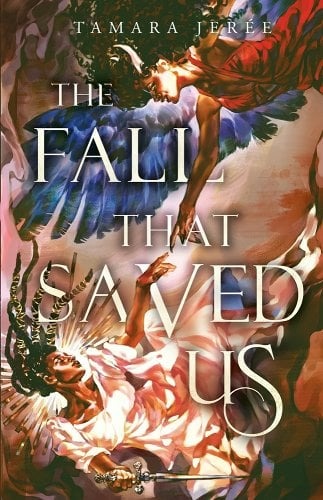Olivia Waite’s The Care and Feeding of Waspish Widows is the second book in her Feminine Pursuits historical romance series, and although they are connected loosely, one can easily start here. Waspish Widows centers on beekeeper Penelope and printer Agatha, two women in their 40s who form a deep friendship through caring for a colony of bees that happenedRead More
Separated Sisters and Warring Gods: The Gods Below by Andrea Stewart Review
Andrea Stewart’s The Gods Below is the start to her new Hollow Covenant trilogy, which follows two sisters in the aftermath of a war between gods. The sisters are not gods—they are ordinary people, forced to flee their home before the prevailing god could change it, and them, into something unrecognizable. While Hakara, the oldest, makes it intoRead More
A Chilling YA Horror: What the Woods Took by Courtney Gould Review
Courtney Gould’s What the Woods Took is a creepy YA horror that follows a group of teenagers who are sent on a hike through the woods as part of an experimental wilderness therapy program: an abusive, exploitative practice with very little oversight. Even before the supernatural horrors began, we have teenagers getting kidnapped out of theirRead More
A Fiery Finale: The Lotus Empire by Tasha Suri
In 2021, three brilliant, yellow-covered epic fantasy books came out, all of them with sapphic leads, and thus the Sapphic Trifecta was born. I have read and loved them all (and talked about them here, along with several other Lesbrarians), but I think if I were to pick a favorite, I would have to say TheRead More
All of the Sapphic Vampires, None of the Victorian Homophobic Overtones: An Education in Malice by S. T. Gibson
Like many queer women, I’m sure, I have a strange relationship with the original Carmilla. On the one hand, sapphic vampires are objectively sexy. On the other hand, the way the danger she poses is framed as inextricably linked to her queerness (and her foreignness) is, well, unpleasant, to say the least. I always say thatRead More
A Small-Town Haunting: The Dark We Know by Wen-yi Lee
Wen-yi Lee’s The Dark We Know follows Isadora Chang, an art student who left her small hometown after the deaths of two of her best friends. Two years later, she returns for the funeral of her abusive father, where she encounters her last surviving friend, Mason. Mason tells her that he suspects their friends were in fact murderedRead More
A Wing-Woman Rom-Com: Sorry, Bro by Taleen Voskuni
Buy this from Bookshop.org to support local bookstores and the Lesbrary! After ending her long-term relationship with her non-Armenian boyfriend, Nar decides to agree to let her mother help her find a new boyfriend among the eligible Armenian bachelors of San Francisco. She plans to spend the next month at local Explore Armenia events, meetingRead More
A Rivals to Lovers Soccer Romance: You Don’t Have a Shot by Racquel Marie
Buy this from Bookshop.org to support local bookstores and the Lesbrary! Racquel Marie’s You Don’t Have a Shot is a YA romance that centers around Valentina Castillo-Green, a high school soccer star whose life revolves around the sport. After an abrupt end to her junior year soccer season, Vale ends up at soccer camp, co-captaining a teamRead More
A Brutal and Brilliant Space Opera: Some Desperate Glory by Emily Tesh
Buy this from Bookshop.org to support local bookstores and the Lesbrary! I thought about reviewing Emily Tesh’s Some Desperate Glory on here last month, right after I finished reading it, but I decided against it because I couldn’t figure out how to talk about in any sort of coherent way. My initial Goodreads review was mostly swearingRead More
An Emotional Demon Hunter Romance: The Fall That Saved Us by Tamara Jerée
Buy this from Bookshop.org to support local bookstores and the Lesbrary! Tamara Jerée’s The Fall That Saved Us centers around Cassiel, a former demon hunter who has left her abusive family behind in favor of a quiet life in a little bookshop she now runs. When a succubus named Avitue shows up one day, the two fallRead More
